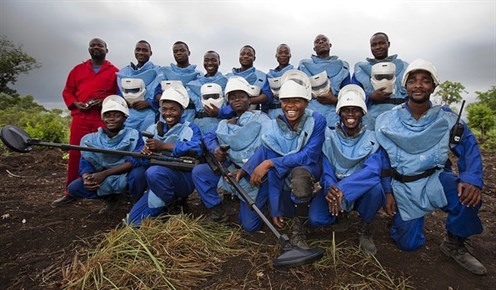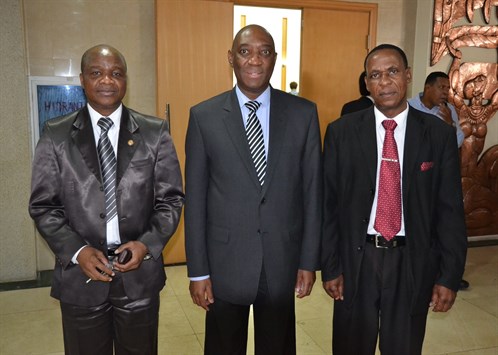17 September 2015
Mozambique: Landmine Clearance Success Shows a Mine-Free World is Possible

Copyright APOPO
Nobel Peace Prize Laureate Organization Congratulates Mozambique
Comunicado na imprensa em Português: A conquista de Moçambique em eliminar as minas antipessoal mostra que um mundo livre de minas terrestres é possível
Geneva, 17 September 2015 - Mozambique's completion of antipersonnel landmine clearance shows that a mine-free world is possible. The International Campaign to Ban Landmines hails this major accomplishment that will allow hundreds of thousands of Mozambicans to cultivate their land, walk to school, and access water safely.
"What might have been considered an insurmountable task just 20 years ago has been done in Mozambique, thanks to political will and the use of adequate methodology," said Megan Burke, Director of the International Campaign to Ban Landmines. "This is an impressive achievement. It also shows that if the right resources are employed in the right way, the majority of contaminated states can complete mine clearance within the next ten years."
During a public event on 17 September 2015, the Instituto Nacional de Desminagem (National Demining Institute) announced the completion of antipersonnel landmine clearance throughout the country. Mozambique is still contaminated by other unexploded ordnance.

ICBL members Albino Forquilha (FOMICRES) and Luis Wamusse (RAVIM), with H.E. Oldemiro Júlio Marques Baloi, Minister of Foreign Affairs of Mozambique, at the completion ceremony
The number of landmine casualties in Mozambique is unknown, but the government estimated recently that as many as 10,900 persons throughout the country had been killed or injured by the weapon over time. While donor states have been very supportive of mine clearance in Mozambique, the country struggles to raise funds for assistance to landmine victims and for disability-inclusive development activities.
"After demining is finished, survivors continue to feel the pernicious impact of these weapons for their entire lives," said Luis Silvestre Wamusse, head of the Rede para Assistência às Vítimas de Minas (Network for Assistance to Mine Victims).
Other sub-Saharan African states with antipersonnel landmine contamination include Angola, Chad, Democratic Republic of Congo, Eritrea, Ethiopia, Mauritania, Niger, Senegal, Somalia, South Sudan, Sudan and Zimbabwe. Mine clearance programmes in all of these countries -- except DR Congo, Mauritania and Zimbabwe -- have been rated as performing "poorly" or "very poorly" by Landmine Monitor, the research arm of the International Campaign to Ban Landmines.
"We hope Mozambique's success might provide an example and impetus for these countries to dedicate the necessary political support, improve their programmes, and release safe land to communities more efficiently," said Megan Burke.
The International Campaign to Ban Landmines is a network of non-governmental organizations in some 100 countries, working to end the suffering caused by antipersonnel mines, through the universalization and full implementation of the 1997 Mine Ban Treaty. The Campaign received the 1997 Nobel Peace Prize.
END
Detailed information on landmine contamination in Mozambique:
Landmine Monitor (last updated August 2014)
Detailed information on landmine casualties and assistance to survivors:
Landmine Monitor (last updated September 2014)
For interviews or more information: media@icblcmc.org


